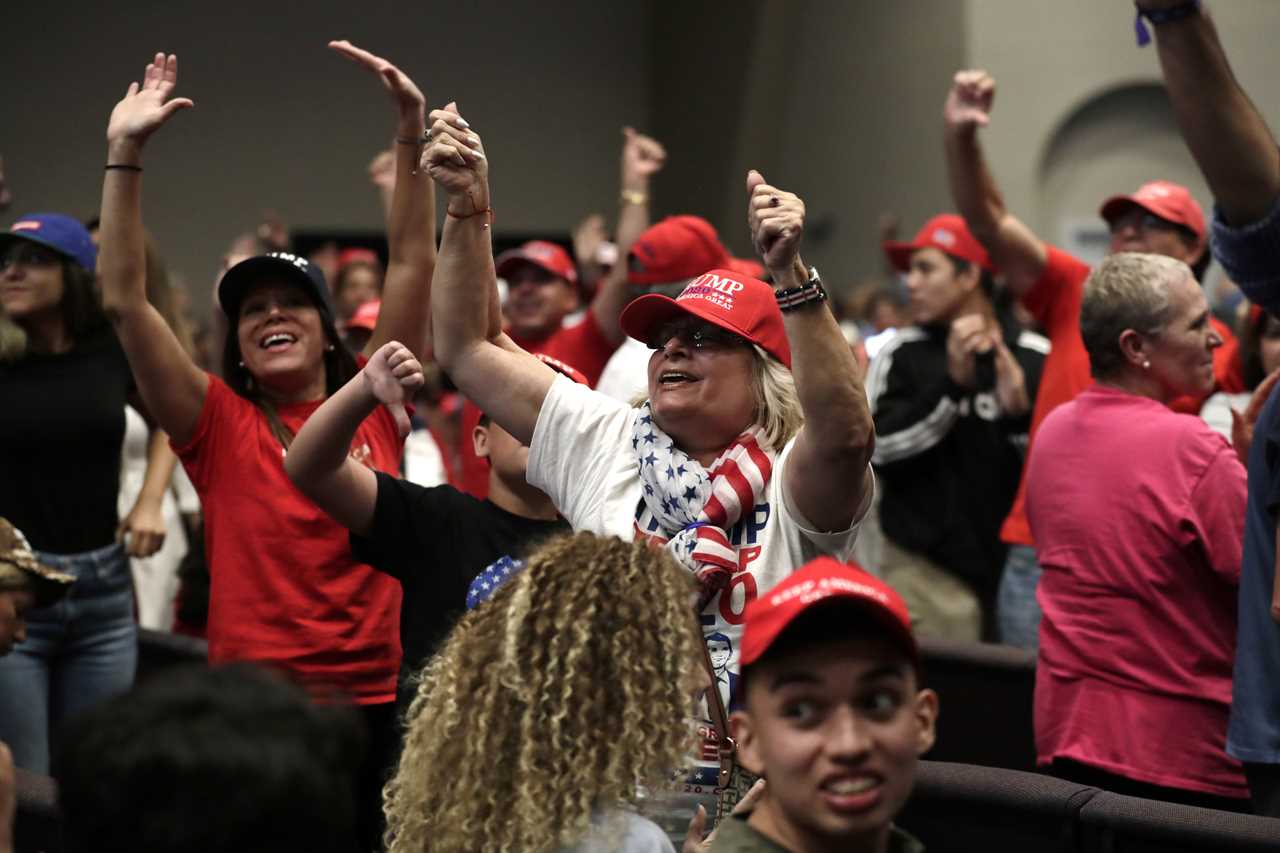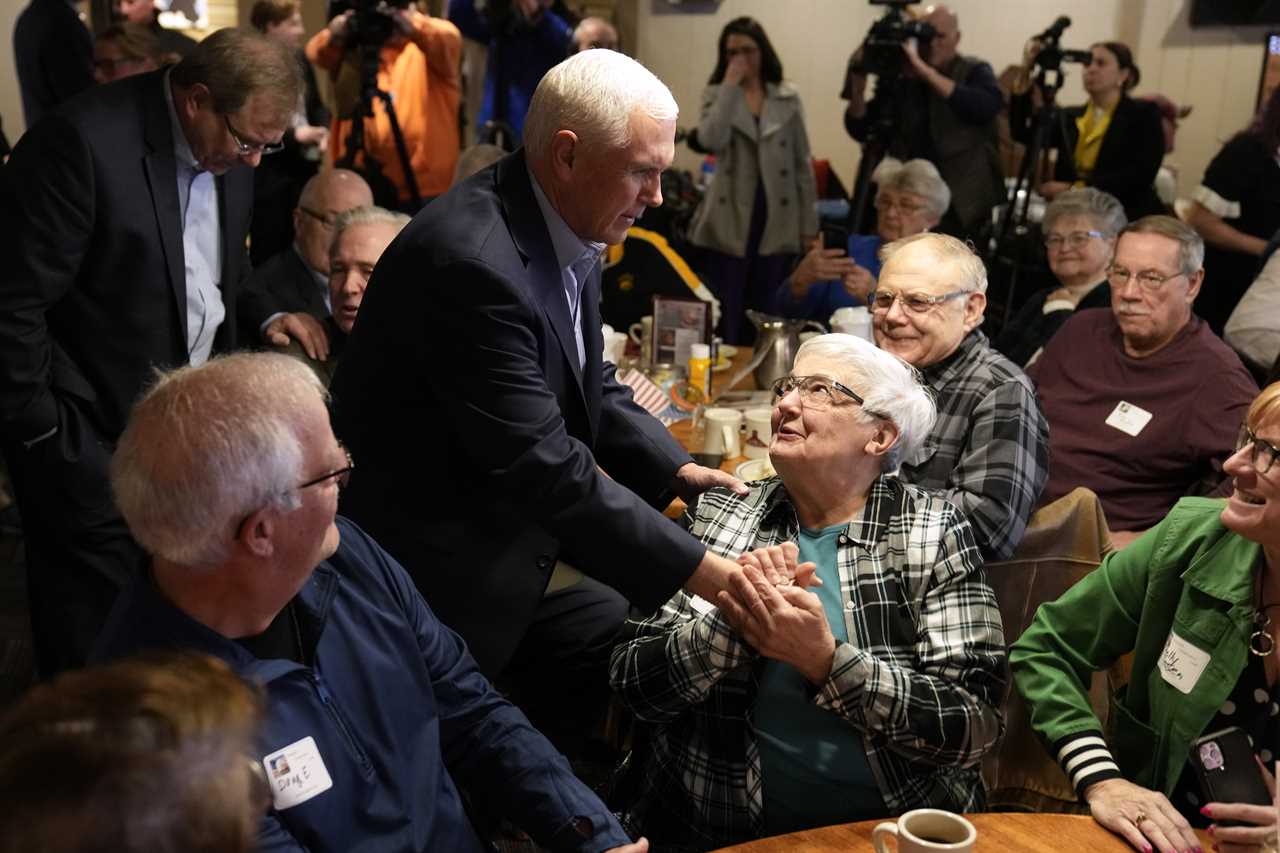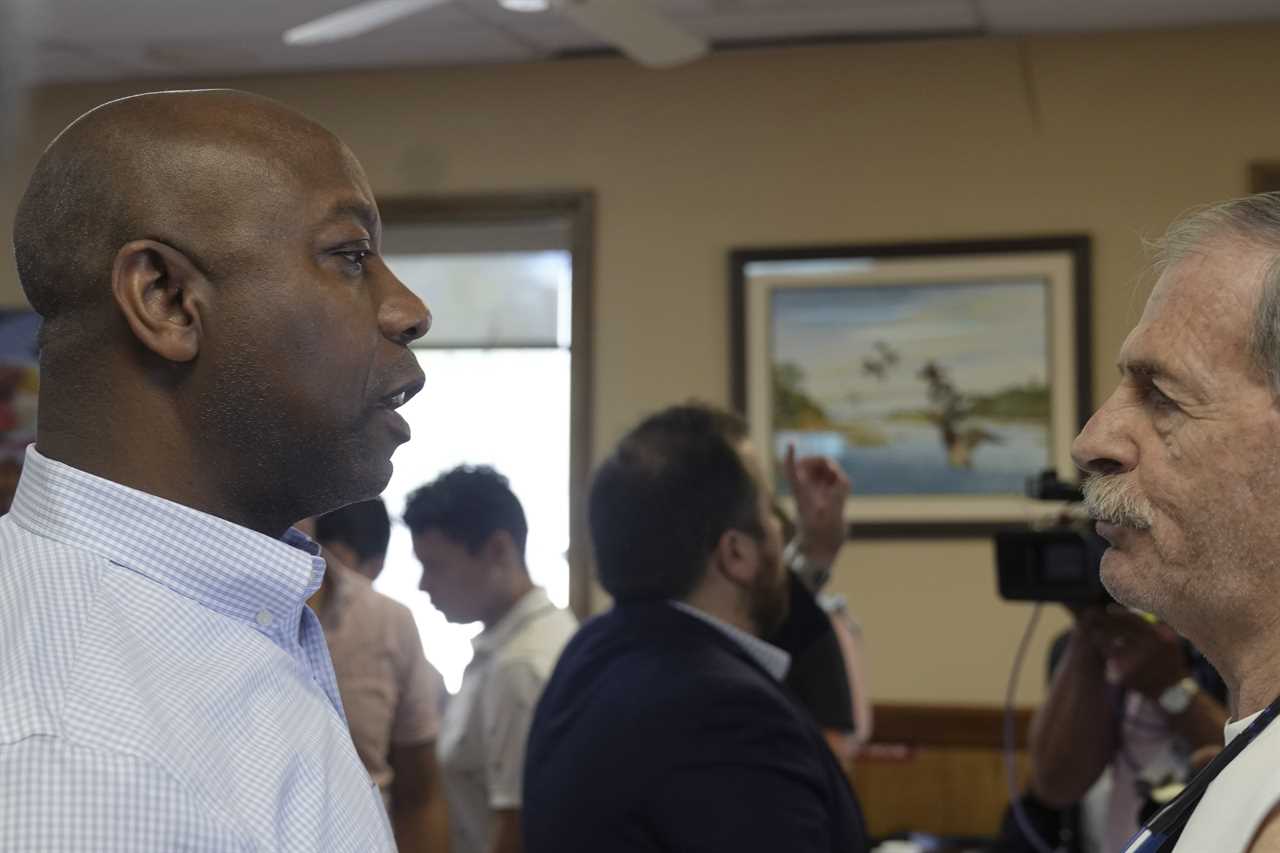
Mike Pence has spent nearly a half dozen of his Sundays in recent months speaking at churches around the country and is writing an entire book about his faith. Tim Scott is on a “Faith in America” tour and twice met with pastors in Iowa recently.
Both of them will appear at a Christian cattle call on Saturday in Iowa, an event that Ron DeSantis is skipping altogether and where Donald Trump will only appear by video.
None of this seems to be doing them any good so far.
Unlike in Republican presidential primaries past, just two candidates — Pence, the former Catholic turned evangelical, and Scott, who speaks of finding a “God Solution” to the country’s racial divide — stand alone in making explicit appeals to Evangelical voters. Trump and DeSantis, meanwhile, are relying solely on their reputations as brute-force brawlers in the culture wars.

Their success — and the difficulties Pence and Scott are having courting voters, according to recent polls — reflects a major change in the evangelical bloc of the GOP electorate in the Trump era. When five GOP presidential candidates take the stage at Iowa’s Faith & Freedom Coalition in Clive on Saturday, vowing to take on the woke left will likely mean more than reciting the Apostles’ Creed.
“Evangelicals have changed and have become more populist and more renegade and wanting to fight more and engage in Christian culture,” said David Brody, the chief political analyst for Christian Broadcasting Network, who wrote the “The Faith of Donald J. Trump." “Trump has a following who wants to fight because they see culture going to hell in a handbasket, and that’s what’s winning the day in politics. And that's why he is winning with them.”
Kristin Kobes Du Mez, a historian at evangelical Calvin University in Michigan and the author of “Jesus and John Wayne,” referenced DeSantis’ “God Made a Fighter” ad as an example of the shifting evangelical soil.
“That’s what evangelicals are looking for now — any personal testimony is kind of a bonus, but not necessary,” Du Mez said. “What matters to evangelicals is they are looking for the best candidate to further their agenda.”
In previous presidential campaigns, GOP candidates like George W. Bush, Mike Huckabee, Ted Cruz and Ben Carson made explicit appeals to values voters. They regaled them with their personal testimonies and, in the case of Cruz, worked stages in the style of a megachurch pastor.
Though evangelicals were initially skeptical of Trump, he slowly gained their trust. His running mate in 2016, Pence, gave them permission to look past his crude remarks and reputation for philandering, among other concerns, and embrace Trump as an unlikely but effective champion of their top moral causes.

With Trump’s election as someone only glancingly familiar with the faith, evangelicals no longer rely on kicking a candidate’s theological tires.
“Evangelicals support Trump because of his policies. He doesn’t pretend to be pious, which is refreshing. He doesn’t pretend to be something he is not, but he has been the most pro-life, pro-religious liberty, pro-Israel president in history,” said Robert Jeffress, pastor at the First Baptist Church in Dallas and an evangelical ally of Trump who is in regular contact with the ex-president.
Trump has the critical Republican voting bloc of white evangelical Christians — about 14 percent of the voting population — to thank for propelling him to the White House in 2016. In 2020, eight of 10 evangelical voters cast a ballot for Trump.
And the church-going crowd is largely still standing with him, polling shows. A Monmouth University survey last month — in a four-way matchup between Trump, DeSantis, Pence and former U.N. Ambassador Nikki Haley — found Trump with 47 percent support among self-described evangelicals, compared to DeSantis with 35 percent. Pence and Haley registered in the single digits.
But Trump’s relationship with evangelical voters has largely been transactional. He promised to stack the Supreme Court with conservative judges who would topple Roe v. Wade and protect religious liberties — and it happened. After the Supreme Court overturned federal abortion rights, Trump lashed out at Christian leaders who weren’t automatically lining up for him in 2024.
“There's great disloyalty in the world of politics, and that's a sign of disloyalty because nobody … has ever done more for 'right to life' than Donald Trump,” he told the Christian Broadcasting Network.
Despite the occasional tensions between some evangelical leaders and Trump, Jeffress predicted that evangelical voters will coalesce around the former president again in 2024.
“I don’t see anyone who has announced so far who has a chance of capturing the vote of evangelicals other than Trump,” he said.
“No Republican can win the primary without self-identified evangelicals,” said Michael Wear, the former evangelical outreach adviser to President Barack Obama's 2012 campaign and founder, CEO and president of the Center for Christianity & Public Life. “What Trump showed is that there are ways to get self-identified evangelicals that do not include directly Christian appeals, particularly the kind of the kind of extensive offering of one's personal testimony that was so important to George W. Bush’s rise.”
Following Saturday’s forum, Pence will head south to Atlanta, where he’ll speak at The Church of The Apostles. He’s expected to release his second book later this year, which will center on his faith journey. For two decades as an elected official, he kept a copy of the Bible and Constitution on his desk and held prayer meetings while in the White House.
“Evangelical leaders appreciate him and his sincerity,” Du Mez said of Pence, “And at the same time, they would prefer him not to be in charge of the country.”
Scott regularly talks about his personal Bible studies — including in a video featured Wednesday on the Christian Broadcasting Network, a tribute to the late Rev. Charles Stanley, a giant of the Southern Baptist Convention. Scott advisers told POLITICO his strategy involves making a direct appeal to evangelical voters in Iowa.
Besides DeSantis, Haley is another notable name sitting out this weekend’s faith forum in Iowa. Rather than convening ministers and church groups, the former governor has instead organized meetings in Iowa with farmers and women’s groups, a sign that Haley is counting less on the evangelical vote.
Despite not making as overt an appeal to evangelicals, DeSantis and Haley are still being embraced by parts of the Christian right. Each has been tapped to give speeches at two of the country’s top evangelical colleges — DeSantis last week at a Liberty University convocation, and Haley early next month at Regent University’s convocation.
Bob Vander Plaats, Huckabee's former 2008 campaign chairman and president and CEO of The Family Leader, an influential conservative Christian organization in Iowa, said some of his constituents support DeSantis, who grew up in a Catholic family and writes in his memoir that it was “nonnegotiable that I would have my rear end in church every Sunday morning.”
“He’s very much your constitutional conservative who is a man of deep faith, but that's not what he's going to reference as he’s applying it to leadership,” Vander Plaats said. “He's going to go back to basic conservative principles and constitutional foundations versus inserting a lot of Scripture.”
----------------------------------------
By: Adam Wren, Natalie Allison and Meridith McGraw
Title: Trump killed the ‘values voter’ wing of the GOP. It isn’t coming back in 2024.
Sourced From: www.politico.com/news/2023/04/21/trump-values-voter-wing-gop-00093175
Published Date: Fri, 21 Apr 2023 03:30:00 EST
Did you miss our previous article...
https://consumernewsnetwork.com/politics-us/when-did-mass-layoffs-start-to-become-normal






